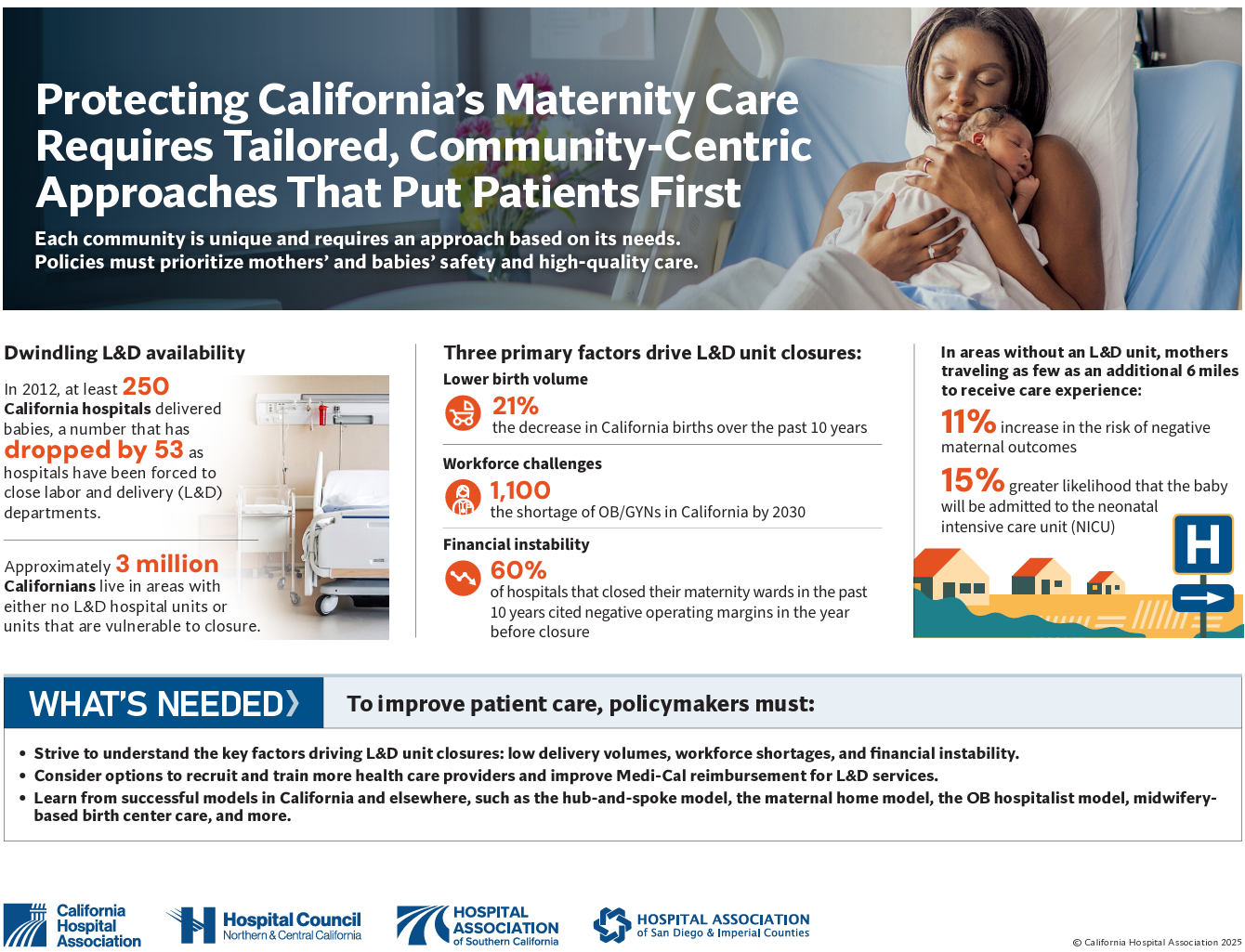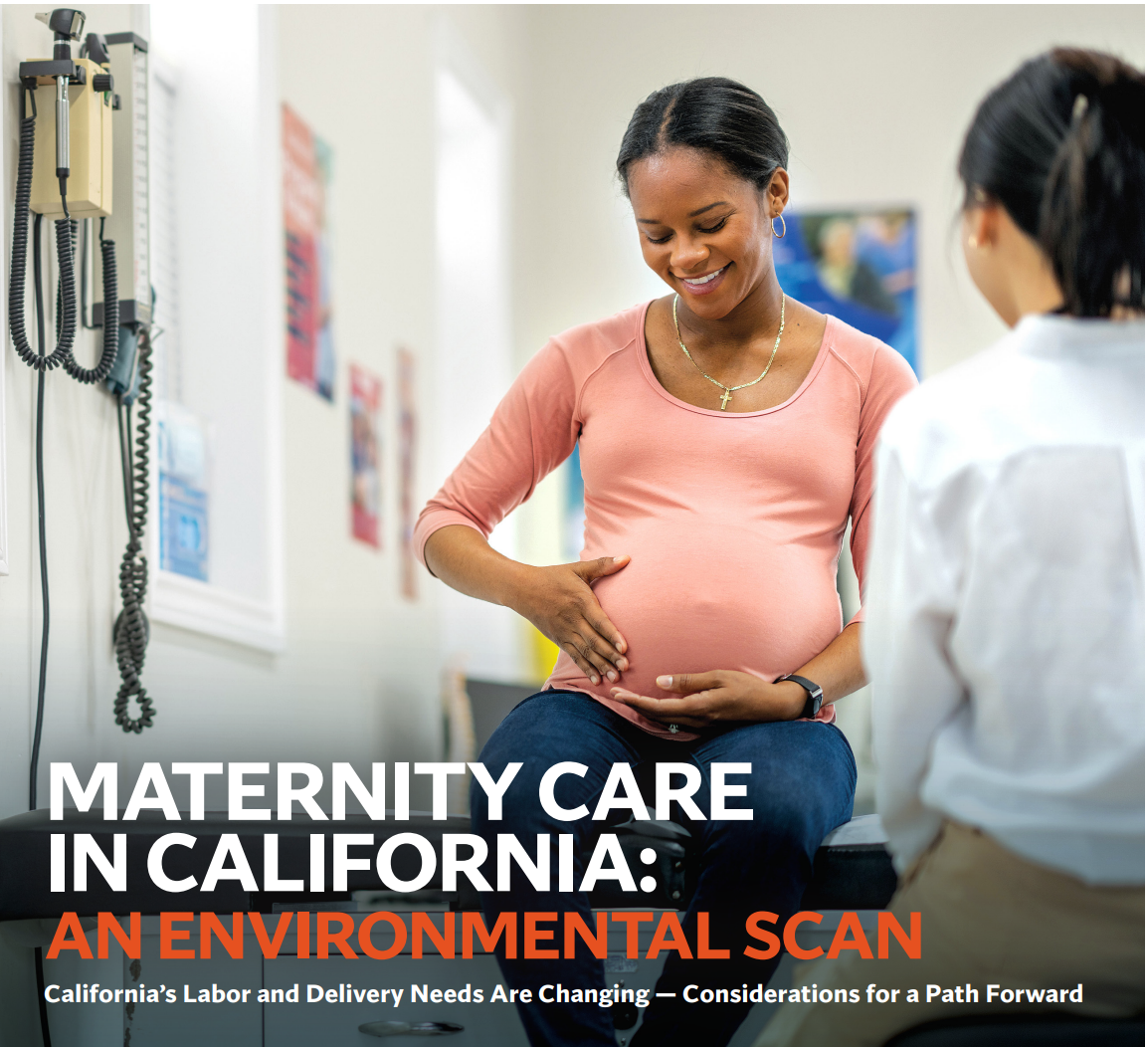About Clinical Care

California’s hospitals are dedicated to providing high-quality, safe, and person-centered health care. This wouldn’t be possible without the clinical services hospitals provide, which include emergency care, surgery, X-ray/radiology, laboratory services, and behavioral health care. The care that hospitals provide is shaped by their communities’ needs.
Parents Get Second Chance at Life Thanks to City of Hope Cancer Treatment
When Arash and his wife Stephanie were diagnosed with cancer, City of Hope gave them the support and care they needed to survive, change their lifestyle, and live more authentically.
CHA Develops State and National Partnerships to Advance Pharmacy Practice
What’s happening: CHA and the California Society of Health-System Pharmacists (CSHP) are calling on pharmacy professionals to join the movement for substantive change in pharmacy practice through their partnership with the American Society of Health-System Pharmacists’ (ASHP) Practice Advancement Initiative (PAI) — and joining the movement begins with taking the California Hospital Survey.
What else to know: Originally launched in 2010, PAI has helped pharmacists across diverse practice settings implement local changes to improve patient care — and ASHP is bolstering these efforts by launching PAI 2030. In PAI 2030, ASHP has introduced 59 updated recommendations aimed at enhancing medication use, expanding the roles of pharmacists and technicians, and embracing emerging technologies.
CDPH Issues New Guidance to Support Doula Access in Hospitals
What’s happening: The California Department of Public Health (CDPH) released All Facilities Letter (AFL) 25-13 on March 24 that offers guidance to hospitals on supporting the Medi-Cal doula benefit — available since January 1, 2023 — and outlines recommendations for patient visitation policies and procedures.
What else to know: As noted in the AFL, called Benefits of Doula Support and Recommendations to Accommodate Doula Services and Foster a Doula-Friendly Environment, doulas offer emotional, physical, and informational support during pregnancy, labor, delivery, and up to one year postpartum. Hospital policies play a key role in creating a welcoming environment for doulas and the families they serve.
Court Rules FDA Cannot Regulate Laboratory-Developed Tests
What’s happening: In a final judgment filed March 31, the U.S. District Court for Eastern Texas ruled that the Food & Drug Administration (FDA) does not have the authority to regulate laboratory-developed tests, rendering a final rule issued May 6, 2024, null and void.
What else to know: This final rule phased out the FDA’s general enforcement discretion approach for most laboratory-developed tests to instead provide greater oversight.
2025 Emergency Services Forum Returns to Newport Beach
What’s happening: In just over six weeks, the Emergency Services Forum returns to Newport Beach, where emergency services professionals will gather for a day of learning, discussion, and networking.
What else to know: The forum, held May 5 from 8 a.m. to 4 p.m., is open for registration. The deadline for booking at the discounted hotel room rate is April 14.
Issue Brief: Protecting Maternity Services in California
Current California standards require health plans to ensure that their enrollees have timely access to medical care — such as being within 15 miles or a 30-minute drive from a hospital. Unfortunately, many people covered by Medi-Cal still face significant hurdles to access care.
Key Messages: Protecting Maternity Services in California
Approximately 3 million Californians live in areas with either no labor and delivery (L&D) hospital units or units vulnerable to closing. When an L&D hospital unit closes, moms and babies experience worse health outcomes.
Infographic: Protecting California’s Maternity Care

Maternity Care in California: An Environmental Scan

Registration Opens for DHCS Birthing Care Pathway Webinar
What’s happening: On March 4, the Department of Health Care Services (DHCS) is hosting a webinar from 3-4:30 p.m. (PT) to discuss the Birthing Care Pathway, a comprehensive policy and care model roadmap to address racial and ethnic disparities throughout the journey of pregnant and postpartum Medi-Cal members — from conception through 12 months postpartum. Registration is open.
What else to know: The goals of the roadmap are to reduce maternal morbidity and mortality and address these significant disparities in maternal health outcomes among Medi-Cal members who are Black, American Indian/Alaska Native, and Pacific Islander.